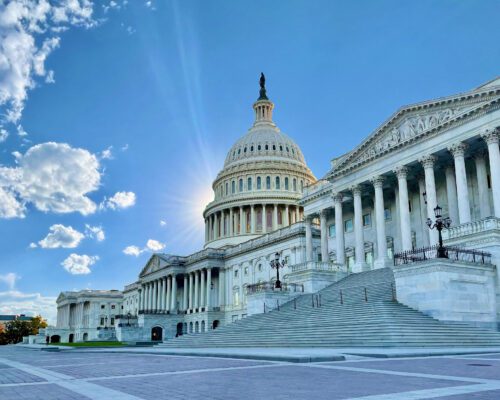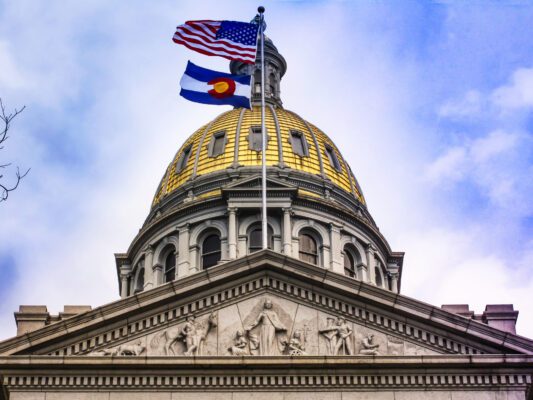On April 17, the Department of Health and Human Services (HHS) released a proposed rule under HIPAA privacy laws to limit sharing of personal reproductive health information. This new rule establishes that healthcare providers and other related entities may violate HIPAA if they comply with investigations into illegal abortion and gender transition procedures.
On June 16, the ERLC filed public comments in opposition to the change. HHS is obligated to respond to each comment before finalizing the rule.
What is HIPAA?
The Health Insurance Portability and Accountability Act of 1996 (HIPAA) was passed to protect sensitive health information from disclosure without the patient’s consent. Covered entities, which includes most healthcare providers and insurance plans, are required to obey HIPAA privacy regulations or face heavy fines.
HIPAA generally limits use and disclosure of protected health information (PHI) unless the individual grants permission for their information to be communicated. Exceptions to these protections include court orders and imminent threats to personal health and safety.
How would this proposed rule change HIPAA regulations?
The proposed changes would enact further HIPAA restrictions that limit the disclosure of PHI related to reproductive healthcare. HHS’ rule would prohibit healthcare providers from giving investigators access to abortion-related information, as well as information regarding other reproductive issues.
The stated intention of this proposed rule is to counteract “criminal, civil, or administrative investigations or proceedings that chill access to lawful health care and full communication between individuals and health care providers.” By redefining the nature and scope of healthcare privacy protections, HHS is seeking to halt future investigations into illegal abortions, gender transition surgeries, and other dangerous procedures.
HHS also proposes several definitional changes to key HIPAA provisions that would transform the meaning and application of the law. Under the proposed reinterpretation of HIPAA,
- Unborn children are explicitly excluded from HIPAA protections, as the rule redefines “person” to mean “a human being who is born alive.”
- HIPAA governance over normal “public health activities” is moved to a category separate from “reproductive healthcare,” which includes abortion, contraception, fertility treatments, and gender transition procedures. This arbitrary distinction prohibits government investigations of illegal healthcare practices from gathering any information broadly related to reproductive health.
- Abortion cannot be a basis for considering an individual to be abused, neglected, or endangered. Under this provision, domestic abusers could more easily access the health records of those they are abusing or even force a minor in their care to get an abortion, all without fear of legal reprisal.
Contrary to HHS’ statement, this rule fails to protect vulnerable women and children and punishes healthcare providers for complying with investigations into illegal abortions and related procedures. By limiting investigators’ access to reproductive health information, the rule overrides state abortion laws and protects those who commit criminal healthcare activities as well as abusers.
Why is this problematic?
HHS’ proposed change would significantly expand HIPAA protections to further restrict necessary access to reproductive health information. Under this rule, healthcare providers possessing PHI related or connected to reproductive healthcare cannot disclose prudent information to the entity seeking it. As the rule grants special legal protection to abortion-related information, thereby limiting investigator access, investigative bodies and even patients themselves will face difficult hurdles to obtain permission to share health data.
By restricting investigative access to relevant PHI, this regulation advances individual privacy at the high cost of overriding all health, safety, and criminal interests of the state.
For example, under the proposed rule, a medical provider in California could not cooperate with an investigation in Texas, where abortion is in violation of state law. Medical licensing boards would similarly be barred from investigating doctors in abortion legal states even if they have an administrative subpoena.
States with some abortion restrictions would likely bear the regulation’s greatest burdens. If a government entity or medical licensing body attempts to investigate an abortion clinic for violating state law, perhaps for performing late-term abortions deemed illegal in that state, the investigatory entity would be barred from accessing health information necessary to ensure patient safety and prosecute criminal abortion providers.
By elevating a right to privacy in the area of reproductive health, HHS is also creating a safe harbor for criminals and abusers.
If a medical provider or doctor assists with an abortion or gender transition surgery illegal under state law, they will be protected from criminal and civil investigations. Even domestic abusers would benefit from the regulation’s newfound protections, as healthcare providers could not report suspected child abusers or limit their access to their dependent’s sensitive health records if the finding of abuse is primarily evidenced by reproductive health information, directly conflicting with Congress’ intent in HIPPA.
As our comments stated, “The lives and well-being of vulnerable women and children are not expendable for the sake of the Department’s political agenda surrounding abortion. These survivors of abuse deserve full protection of the law and every possible measure must be allowed to ensure their safety.”
HHS is also leveraging this regulation to improperly assert federal jurisdiction over abortion regulation. The Supreme Court ruled in Dobbs v. Jackson that the Constitution grants no federal right to abortion, instead leaving regulation to Congress and the states. But under this proposed regulation, the federal government overrides state-level restrictions to elevate abortion to a special, protected status. There is no rational basis to overrule state law when there is no federal right to abortion.
As we argued in our comments:
“By allowing federal employees to interpret state laws and give the presumption of invalidity of entire categories of state laws, the NPRM is in direct conflict with (the Supreme Court’s) ruling. The Department’s directive allows federal bureaucrats to be both the judge and jury for how to interpret state law and to make decisions on when such laws should be followed or not.”
How has the ERLC responded?
The ERLC has submitted public comments expressing these concerns about the proposed rule and urging HHS to retract its changes to HIPAA privacy regulations. The ERLC will continue to monitor these changes and advocate for the protection of life and human dignity at all stages.








